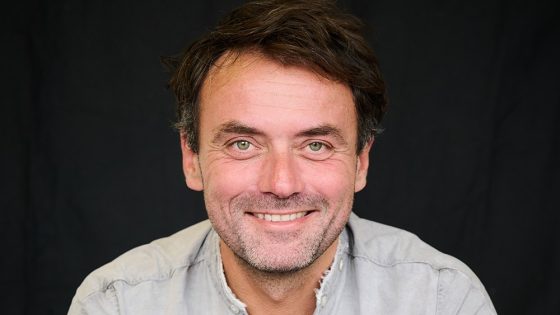When Sébastien Raybaud founded Anton in 2011 (as Anton Capital Entertainment), his first major deal proved to be groundbreaking for the European film industry.
Although institutional slate financing had been a regular practice among U.S. studios (Raybaud himself helped arrange several deals during his time on the film arm of investment bank Société Générale in London), it just wasn’t being done on the continent.
“There was a disconnect,” he says, pointing to the money that was available in the U.S. compared to Europe. So Anton was originally set up to “marry big investors with the industry.” It did just that with a €150 million (($160 million) three-year slate-financing deal with StudioCanal using U.S. fund Falcon, with the cash injection helping bankroll both the hugely successful “Paddington” and “Shaun the Sheep” franchises, kickstarting a period of significant growth for the Vivendi-owned studio.
“Because of the money we raised, we really helped them get to a different stage of their evolution where they wanted to do bigger films,” says Raybaud, adding that Anton ended up co-funding more than 150 films with StudioCanal.
Much has changed at Anton since then. Although Raybaud asserts it’s still the only European player bringing institutional funding to the table, the company has expanded away from solely being a financial player. In 2019, it launched its own production arm (the first project being the Gerard Butler survival thriller “Greenland”), and later a sales division (which recently has been shopping Annecy winner “Memoir of Snail”). Last year it opened a TV production side, led by former Fremantle alums Sangeta Desai and Sarah Doole. The company now spans three locations — London, Berlin and L.A. — with a staff of 50.
“Greenland: Migration”
Courtesy of Anton
But now, this expansion is set to be fast-tracked, at least in terms of its productions.
In Cannes this May, Anton announced that it had secured more than €100 million ($108 million) in new financing through a group of institutional investors, led by funds and accounts managed by BlackRock. This time, rather than being destined for other producers, the money will be pumped into its own film and TV output. At the time of the deal, Raybaud said the investment would allow it to “greenlight more ambitious projects.”
But that’s not to say the caliber of features that Anton was producing itself hadn’t already been steadily rising in scope and scale. At the Berlinale earlier this year, it launched the David Mackenzie thriller “Fuze” — starring Aaron Taylor-Johnson and Theo James — and the psychological horror “Palette” with Hunter Schafer. The two projects joined an upcoming in-house slate that also includes “The Cleaner” starring Daisy Ridley. And then there’s the “Greenland” sequel, with Butler returning alongside director Ric Roman Waugh. Both “Fuze” and “Greenland: Migration” are now in production, with Sam Worthington and Gugu Mbatha-Raw joining “Fuze” as shooting kicked off earlier this month.
The intention for the new investment is to allow Anton to work at an accelerated pace, build their production pipeline and produce around 8-10 features a year (although there’s no strict figure). The overall goal is to create what Raybaud describes as a “pan-European studio,” with a focus on commercial English-language features, specifically genre films from action and thrillers to elevated horror and sci-fi, and one that draws in directors who want to work outside the studio or streamer world.
“Our big pitch is that, if you’re a big director and want to do a big action film, what are the options you have?” Raybaud says. “If you work with a streamer, as a director, you lose the IP, you lose the upside. But if you work with us, you retain way more ownership. So it’s more revenue for all the creatives.”

“The Cleaner,” starring Daisy Ridley
But alongside the bigger budget action films (“Greenland: Migration” comes in at around $90 million), there’s also a desire to help breathe life into more authored, director-driven titles and back new voices. Raybaud points to “Femme,” the LGBTQ revenge thriller Anton produced from first-time directors Sam H. Freeman and Ng Choon Ping that bowed in Berlin in 2023.
Raybaud freely admits that he looks to the large private-equity backed film production companies in the U.S., such as Legendary, as a source of inspiration. While Anton’s size may still be significantly smaller (it’s not going to be financing a “Dune”-sized tentpole anytime soon), he says to attract investment from BlackRock — the world’s largest asset management company with some $10 trillion in assets — shows a definite “validation” in his now tried-and-tested model of bringing private equity slate financing into Europe.
And in terms of the filmmaking, Raybaud says the investment essentially allows Anton to “do the same” as it has been doing — “but more of it.”
Source Agencies



